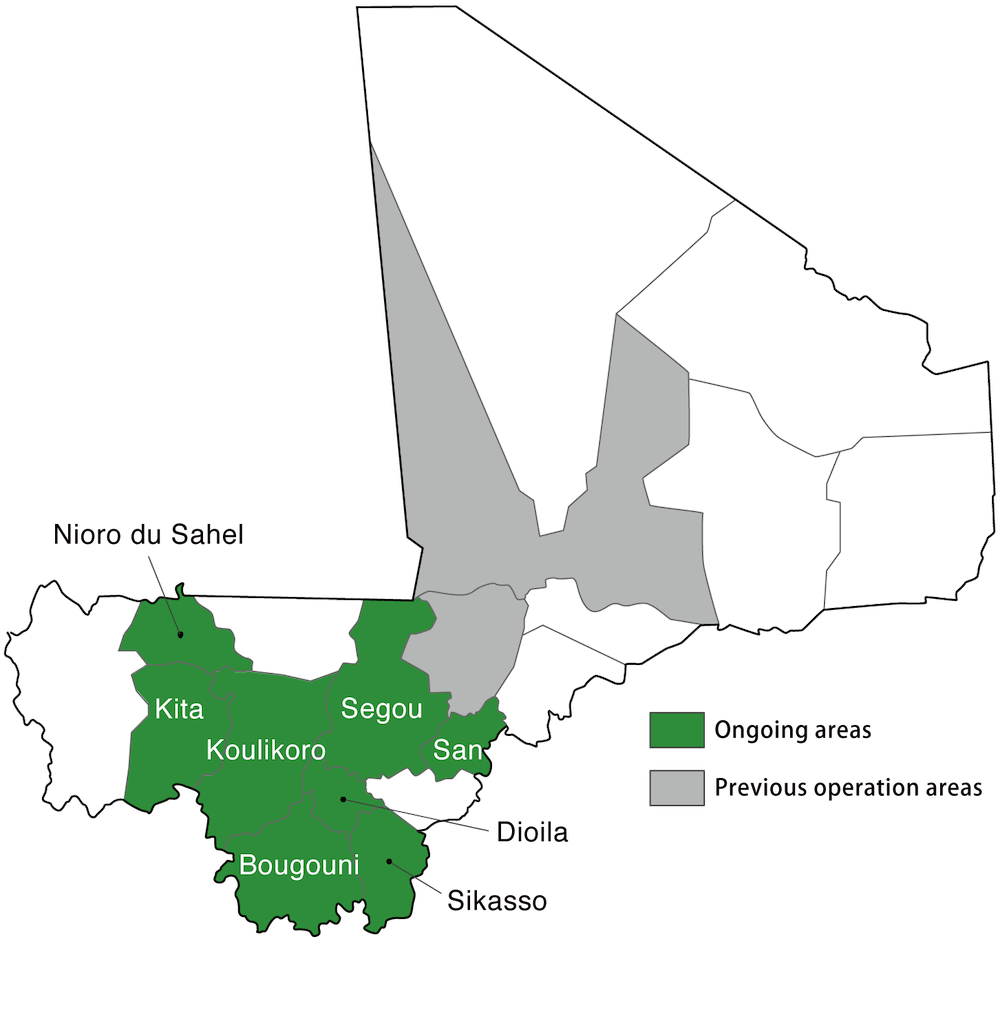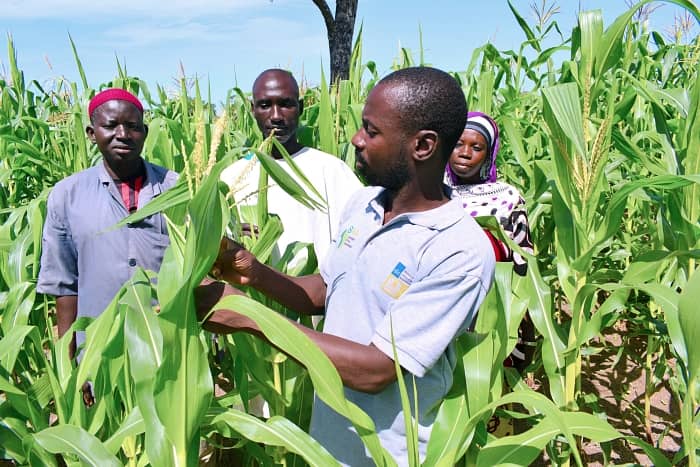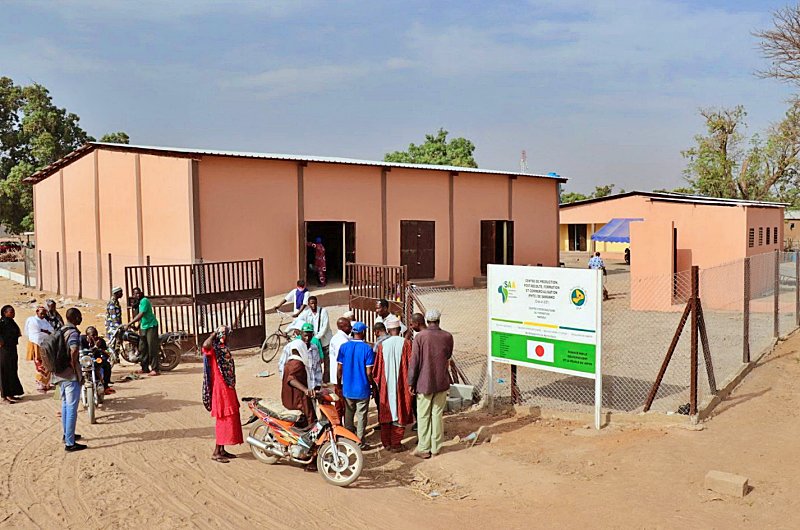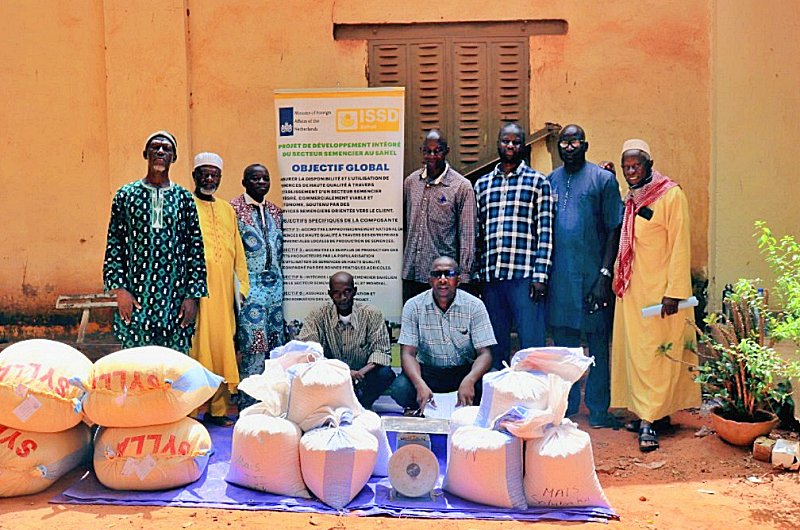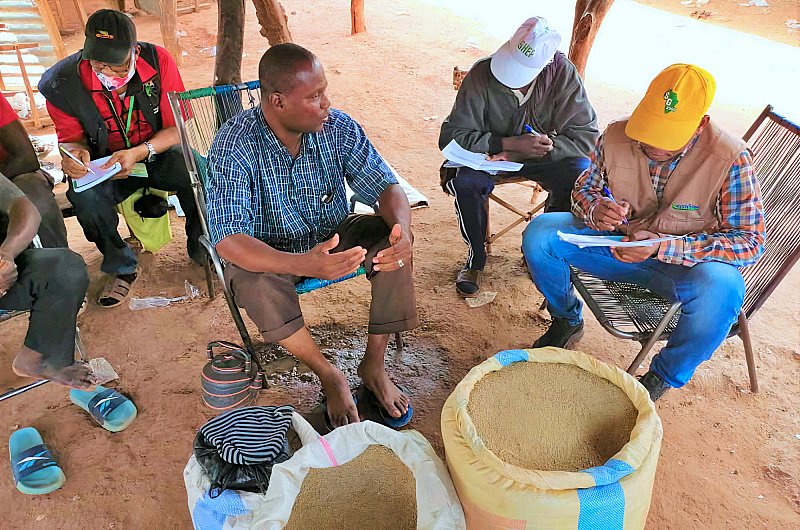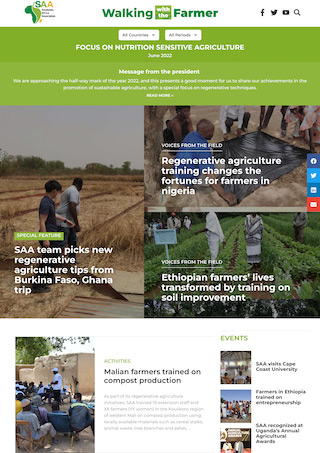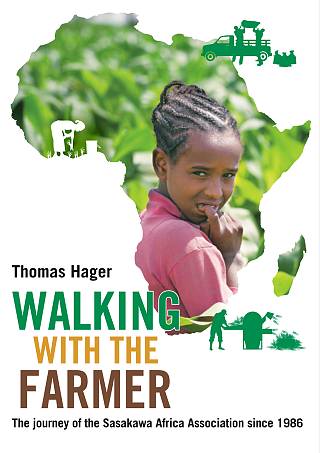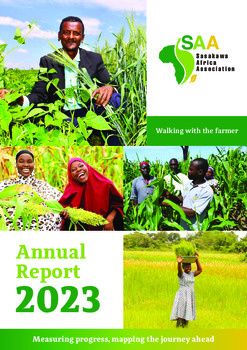In Mali, agriculture plays a crucial role in the national economy and in people’s livelihoods. Mali's agricultural sector encompasses a rich variety of crops, including millet, rice, maize, and cotton. However, agriculture in Mali faces numerous challenges, notably drought, soil degradation and climate change. Malian farmers predominantly depend on rainfall for their agricultural activities, making them vulnerable to climatic variations. The implementation of agricultural development initiatives and sustainable practices is essential to address these challenges and enhance the resilience of Malian farmers while ensuring food security.
In June 1996, SAA launched what was formerly known as the Sasakawa Global 2000 Mali (SG 2000-Mali) program, funded by The Nippon Foundation. Like its counterparts in other countries, SG 2000-Mali collaborates closely with the National Directorate of Agriculture (DNA), operating under a Memorandum of Understanding (MOU) with the Ministry of Agriculture.
From its inception in 1996 to 2004, the program primarily focused on improving crop productivity and production. Key intervention areas included:
1 ) Improvement and restoration of soil fertility.
2 ) Demonstrating crop intensification technologies through Production Test Plots (PTP).
3 ) Establishing rural savings and loan associations.
4 ) Forming partnerships with national and international research institutions and the private sector.
During the period 2005 to 2008, there was a notable increase in farmers’ knowledge of crop production intensification technologies. This led to improved yields of targeted crops in intervention areas. It therefore became necessary to explore ways for farmers to capitalize on this yield improvement by linking them to output markets. This marked the beginning of the development of the Agricultural Commodities Market for Farmers' Organizations, which led to the creation of the Nietak@ne initiative. The Nietak@ne development center served as a training hub, equipped by SG 2000-Mali with drying and storage facilities for grain and a chicken rearing compound, plus office and workshop facilities. The initiative was supported by three regional programs: QPM, NERICA and Post-harvest & Agro-processing. SG 2000-Mali played a crucial role by facilitating the acquisition of inputs and providing technical support ranging from production to marketing. It also conducted monitoring and evaluation activities.
The period 2009 to 2011 aligned with the restructuring and development of SAA’s Strategic Plan (SP 2012-2016). A significant milestone during this time was the successful launch of the National Seed Fair, delivered by SG 2000-Mali and its national partner from the Ministry of Agriculture. This event has since been institutionalized and is now conducted annually under the auspices of the Ministry.
From 2012 to 2016, SAA implemented its Strategic Plan (SP 2012-2016), with objectives focused on food security and aligned with key agriculture development policies, namely the Agriculture Orientation Law (ALO) and the Agriculture Development Policy (ADP 2013). While crop productivity remained a priority, the strategy adopted a more holistic value chain approach, emphasizing post-harvest management and agro-processing as well as market linkages. The overarching goal was to transform Malian smallholder farmers into thriving commercial farmers. Central to the implementation approach was the concept of Post-Harvest and Trade Centers (PHTCs), which aligned with the Nietak@ne initiative. SAA collaborated with farmers to establish viable farmer-based organizations, offering services ranging from input delivery to postharvest handling, storage, agro-processing, and marketing of agricultural products. The PHTCs aimed to foster excellence in production, post-harvest management and processing. They also focused on marketing and creating employment opportunities at the community level. The 2012-2016 Strategic Plan was successfully implemented across 12 districts in four administrative regions: Kayes, Koulikoro, Sikasso and Segou.
In 2020, SG 2000-Mali rebranded as SAA-Mali and launched its Five-Year Strategic Plan (2021-2025). The plan embraced a holistic approach to addressing agricultural challenges in Africa, particularly chronic soil degradation and climate change. It emphasizes building sustainable and resilient food systems, focusing on Regenerative Agriculture (RA), Nutrition-Sensitive Agriculture (NSA), and Market-Oriented Agriculture (MOA) as its major pillars. Above all, the strategy recognizes the critical need to address environmental issues and adapt to evolving climatic conditions to ensure long-term agricultural sustainability in Mali.
